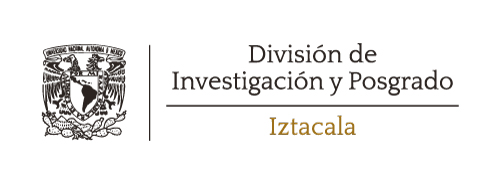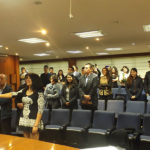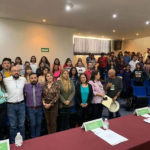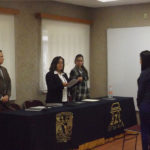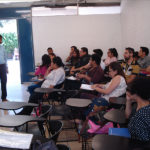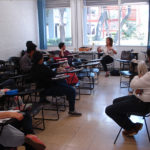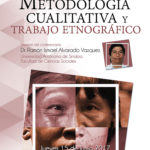
| Location within campus: | Cubicle 23 and 26 UPPER FLOOR UIICSE. |
| Phone: | 55 56231333 EXT. 39757 |
| Head of Laboratory: | Dr. María Alejandra Salguero Velázquez Full Professor C alevs@unam.mx |
| Researchers affiliated to the laboratory: | Dr. Juan José Yoseff Bernal jyoseff@gmail.com B.S Bernardo Ángel Delabra Ríos delabra2303@gmail.com Ms. Eliza Paulina Romero Mancilla el.i.saaack@gmail.com B.S Montserrat Soriano Chavero soriachavero@gmail.com Ms. Esther Valle Morfín psic.esther.valle.morfin@gmail.com Ms. Jessica Paola Obregón Patiño psic.jobregonp@gmail.com |
| Research lines per researcher: | Masculinity and Fatherhood with Adult Sons or Daughters. Men’s Participation in the Home. Father-Child Relationships in Educational Settings. |

The research project is theoretically and conceptually situated within the sociocultural approach in both psychological and sociological fields with a gender perspective. It addresses the study of masculinities, focusing on gender stereotypes through which men have learned how to be men, the difficulties and discomforts they face that are often silenced for not conforming to the hegemonic model of masculinity, and the concept of being a man.
Furthermore, it incorporates research on fatherhood or multiple forms of fatherhood, recognizing that there is more than one way to be a father. The presence of men in the exercise of fatherhood and the implications of their absence within the family structure are important aspects to explore, considering their impact on the development of children, themselves, and their partners.
We are interested in documenting the changes or continuities in masculinities and fatherhood based on gender stereotypes and sociocultural requirements. We aim to explore the possibility of men being involved and engaged in family settings, building relationships based on gender equality and equity.
The methodological approach employs qualitative research, utilizing strategies such as in-depth interviews, semi-structured interviews, life stories, and participant observation to capture experiences and meanings within life trajectories.

Salguero-Velázquez Alejandra, (2014) Identidad masculina. Elementos de análisis en el proceso de construcción. UNAM, FES Iztacala.
Salguero, M.A. y Yoseff, J.J., (2020). Presencias y ausencias paternas desde una aproximación sociocultural de género. UNAM, FES Iztacala.
Salguero, M.A., Yoseff, J.J., Soriano, M., y Delabra, B. (2019). Presencias y ausencias paternas: la experiencia de hombres en Ciudad de México. ENCRUCIJADAS. Revista Crítica de Ciencias Sociales. Vol. 18, 1-21a1804; http://www.encrucijadas.org/index.php/ojs/issue/view/23
Yoseff, J.J, Salguero, V.A., Delabra, B. A., y Soriano, M. (2018). Ausencias paternas y emociones en la vida familiar: una aproximación sociocultural Revista Electrónica de Psicología Iztacala, 21(4), 1526-1547,
http://www.revistas.unam.mx/index.php/repi/article/view/68029ale
Salguero-Velázquez, M.A. (2018). Es difícil ser hombre, pero más ser hombre indígena: Identidades Masculinas in/EXISTENTES. Revista La Manzana de la discordia. Número 25, Vol. 13, No.1, 8-8, Dossier: Masculinidades indígenas mexicanas contemporáneas. Centro de Estudios de Género de la Universidad del Valle, Cali, Colombia.
DOI: https://doi.org/10.25100/lamanzanadeladiscordia.v13i1.6716

| Entry profile of potential thesis students: | Students interested in researching gender identities, the construction of masculinity and fatherhood with adult children; men’s participation in household activities; father-child relationships in educational settings. Students should be in their 7th or 8th semester of the Bachelor’s in Psychology or enrolled in a postgraduate program in social sciences. |
| Service Social Data: | Regarding Psychology students, social service is integrated into the curriculum’s practical components. |
